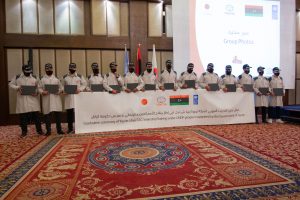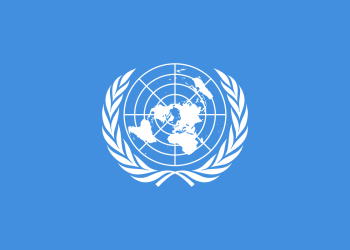By Sami Zaptia.

London, 30 March 2021:
With support from the Government of Japan and through United Nations Development Programme’s (UNDP) “Stabilization to Recovery Transition (START) in Libya”, 14 male and female Libyan youth finished their 3-month on-the-job course by which they gained car maintenance and customer services skills in Toyota Libya’s dealerships in four cities across Libya: Tripoli, Benghazi, Misrata, and Zliten. Ten of them have received job offers after the training.
Today they celebrated their graduation in the presence of representatives from Toyota, UNDP and the Embassy of Japan.
This comes as part of the UNDP and Toyota Libya F.Z.C’s agreement signed in 2018 with the aim of creating jobs opportunities for youth. Through this mutual collaboration 115 youth: 55 young men have gained skills in auto mechanic and 60 young women in customer services.
Toyota Corporate Division manager, Mr. Muftah Adburahim, stated: “Development and prosperity of a society relies on the youth, therefore Toyota Libya F.Z.C, with support from UNDP Libya, and a generous funds from Japan trained young people and today we are celebrating their success to obtain jobs. I congratulate the graduates as they are fundamental to build the community.”
“On behalf of Toyota Libya, I would like to express our gratitude to the Government of Japan and the United Development Programme for their great support. The corporate has always tried to contribute to the Libyan society. After this training I hope all of the graduates could develop their skills and wish you all the success to contribute to build a new Libya together,” said Toyota Managing Director CEO, Mr. Naohiro Masuda, in a video played during the event.
New acting Ambassador of Japan, Mr. Masaki Amadera, who is visiting Libya for the first time and attended the ceremony: “Private sector engagement is essential to tackle socio-economic issues. This joint Toyota and UNDP project is one of the good examples. Glad to see a Japanese company contributing to economic recovery and development in Libya. The government of Japan is pleased to support this great initiative. Through economic development and job creation, particularly targeting the youth, the private sector has tremendous potential to help in the stabilization of the country and to encourage youth to be part of the recovery. In Japanese we say: “Monodukuri ha hitodukuri”; it means: through making the things, we also build human development.”
On his part, UNDP Resident Representative, Mr. Gerardo Noto, declared: “More than 60% of population in Libya are under 30 years old and faced very difficult challenges for employment. Promoting innovation, entrepreneurships skills and technical/vocational training, UNDP is working to increase job opportunities for youth, especially in the private sector, an important step for inclusion and reinsertion. Private sector engagement is essential to tackle socio-economic issues and to advance inclusive sustainable development in the longer term.”
At the event, the graduates received their certificates and two of them explained how their experience with Toyota was.
“Thanks to this training I became confident to operate a car maintenance center that provides the best services. I believe in myself now and I love this field,” said one of the graduates displaced person from Benghazi living in Tripoli, 28 years old.
The Start and Re-Start projects create jobs
Within START project, UNDP also launched Re-Start-Up through which it has provided business grants to 30 entrepreneurs in Tripoli, Benghazi and Tawergha, and they created more than 200 new jobs in their communities. UNDP’s START implemented the first “cash for work” initiative in Libya providing so far 100 temporary employment opportunities and short-term income for the most vulnerable population.
To support the National Center for Disease Control (NCDC) in Libya, UNDP’s START has supported seven NGOs to produce personal protective equipment (PPE). Those NGOs have produced 27,500 face masks, 4,300 gowns, 12,100 face shields and trained and created 122 persons/temporary jobs in Tripoli, Maya, Zliten, Benghazi, Sebha, Ghadames, and Derj. Furthermore, the START project supported a private company to produce locally made PPE to fill the shortage of the national stocks and build national capacity to manufacture PPE. The selected company produced 180,000 Surgical Standard Face masks, 20,000 Face masks Washable Reusable and 2,000 gowns. Those PPE will be delivered to the NCDC to distribute to relevant municipalities.
Market research
The project is also conducting two assessments to identify needs in the labour market and the agro-food value chain. So far, it has collected more than 2,000 private sectors data in 14 municipalities and is currently conducting interviews with more than 350 of them.







